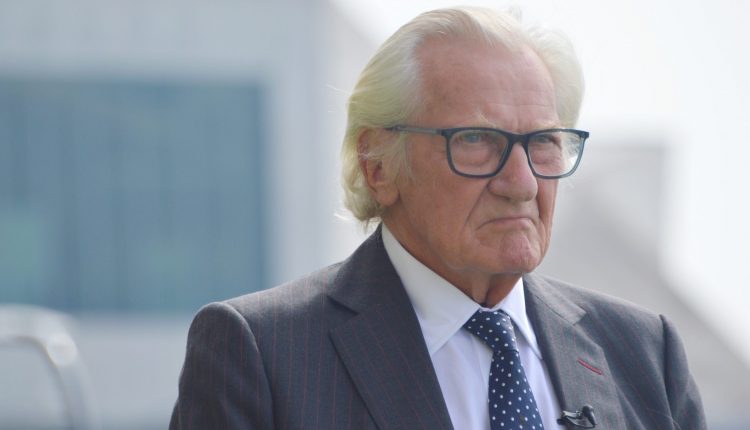In an interview with LBN the former Minister for Merseyside Lord Heseltine urges Government to offer more power and more money to Liverpool City Region Metro Mayor Steve Rotheram. Tony McDonough reports
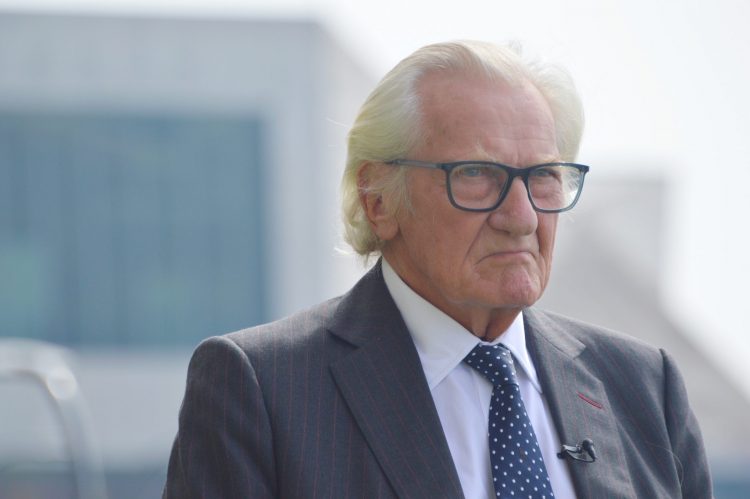
Lord Heseltine is urging the Government to offer more power and money to Liverpool city region to accelerate its regeneration and economic development.
Speaking to LBN ahead of a special event to mark the 15th anniversary of the £1bn Liverpool ONE retail and leisure development, Lord Heseltine said the job of Metro Mayor Steve Rotheram was to deliver economic success for Merseyside.
That, he added, required “vision, energy and enterprise” and a strong partnership with the “Government of the day”. But he insisted this could only be achieved with the full backing and cop-operation of central government.
Lord Heseltine’s association with Liverpool stretches back to 1979 when he first took on his Minister for Merseyside brief when he was plain old Michael Heseltine.
He used his powers to block the planned demolition of Liverpool ’s Royal Albert Dock, now one of the jewels in the crown of Liverpool’s visitor economy, welcoming millions of people every year.
But it was following the Toxteth riots in the summer of 1981 that Lord Heseltine really forged a bond with the city that has endured for more than 40 years. Remarkable given the general hostility towards Conservative politicians in Liverpool.
In July 1981 the anger and frustration of many young people in Toxteth exploded on the streets in a dramatic and devastating fashion. The riots lasted for eight days and left 70 buildings, and the businesses they housed, burnt down or demolished.
In the days following the uprising the Government scrambled for a response. It has become an oft-repeated myth that Margaret Thatcher advocated a policy of managed decline for Liverpool and other similarly-blighted urban areas.
However, for all her faults, this wasn’t the case. It was the then Chancellor Geoffrey Howe, a former Wirral MP, who wrote a short note to the Prime Minister warning her “not to over-commit scarce resources to Liverpool… I fear that Merseyside is going to be much the hardest nut to crack”.
He went on: “…. I cannot help feeling that the option of managed decline is one which we should not forget altogether. We must not expend all our limited resources in trying to make water flow uphill.”
Lord Heseltine advised the Prime Minister to do the opposite and urged her to send him to Liverpool to kick-start Liverpool’s revival. Mrs Thatcher embraced Lord Heseltine’s recommendation and rejected Howe’s.
He produced a report, It Took A Riot, which laid bare the huge social, cultural and economic challenges the city faced.
More than 40 years later Lord Heseltine is still a regular visitor to the city. He told LBN: “No city is ever where it has to be. It is always a dynamic situation and the exciting thing about the Liverpool of today is it is the one I first visited in 1979 in that it has so much going for it.
“I heard an interesting statistic that in 1979 there were 1,000 hotel rooms in Liverpool – today there are 9,000. And that tells you about the scale of change that has taken place in the past 40 years.
“Eurovision was a wonderful event and it is typical of what is happening here now. Liverpool is a confident city and the Capital of Culture was another great example and who knows what it will lead to.”
“And there is a wonderful future. There is such confidence – so many people know what they want to do. And the framework of mayoral devolution is now in place.
“There is more to do. It needs reinforcing and building. It needs more powers and central Government needs to reflect on the local mayoral structure. And that is the most important administrative change that any central Government can bring about.
“They need to effectively recreate the local offices of central Government.”
Lord Heseltine was at the Royal Liver Building on the city’s waterfront for a round table discussion event to mark the 15 years since Liverpool ONE opened in 2008, the year the city was also European Capital of Culture.
Also on the panel was Mark Preston, chief executive of Liverpool ONE owner Grosvenor, Claire McColgan, director of culture at Liverpool City Council and Zoe Davidson, partner at Deloitte.
Sophie Bevan, director of development and major projects at Liverpool City Council, also joined the discussion later on.
When Lord Heseltine first walked the streets of Liverpool following the riots he found a culture of despair and resignation. Few were willing to stand up and take responsibility, instead preferring to blame others.
In the early 2010s the then Prime Minister David Cameron sent Lord Heseltine back to Liverpool, along with Liverpool-born Tesco chief executive Sir Terry Leahy, to compile a progress report on the city.
And it was the transformation of the attitudes of people in the city that he found most striking. A ‘can-do’ attitude was now hard-wired at all levels.
He said: “We just sat there and all the people came in. That was a big change. They all wanted to play a part. They believed in it. And once you have that it is impossible to snuff out.”
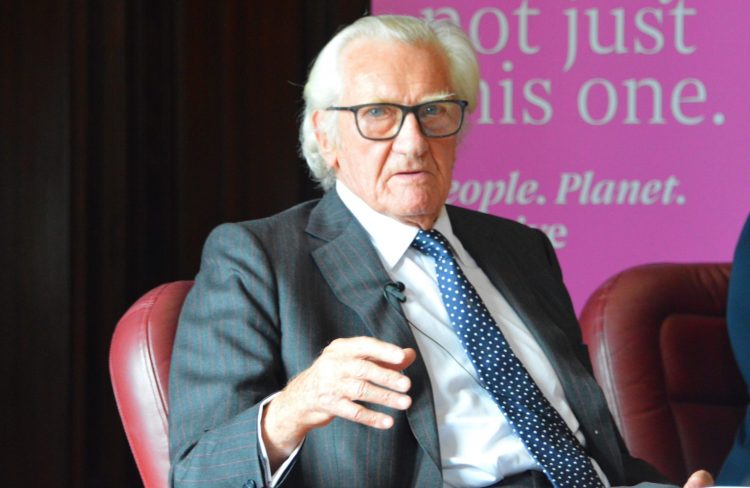
Back In 1981 one of Lord Heseltine’s key achievements was to get the public and private sectors working together. He explained: “I had a grant mechanism and I had the money and said ‘we will take it into derelict land in the cities’.
“There was lots of this in Liverpool and a critical decision I made was that I would only spend the money in partnership with the private sector.
“I would clean the land only if a developer would put houses on it or a factory owner would put a factory on it. That produced the concept of ‘gearing’. For every pound of public money invested I wanted a pound of private sector money.”
He went on: “The trick to regeneration is incentives. Grants were conditional on gearing. Local councillors and officials found themselves having to have conversations with property developers.
“These were people who either shouted abuse at each other, or at least complained about each other, from their own hilltops. Now they were having to talk to each other and they discovered they were just human beings and they could work with each other.
“So the incentive was there to bring all the strengths together and to bring human beings in contact with each other.
“It is that very simple experiment which is why I am so passionately in favour of the mayoral authority. That is what the mayoral authority does. It brings the focus on one person for the whole community.
“If you give them powers and money, that means everyone has an incentive to come and find out how you can share in those opportunities.
“Universities have a massive role to play in regeneration. But it is not just the students, it is the research facilities that can attract industries. Get the researchers in a room with overseas investors. It is a circular system.”
One of the biggest challenges of devolution is education, said Lord Heseltine. He added: “Education, training and skills. The people who are going to create the jobs who know the skills that are required are the people locally. Devolving education and skills is critical.
“… If I could wave a wand in regeneration the most urgent thing would be the education and training of our young people. Of making it worth their while to be able to be part of a society in which they can contribute. And that starts in the homes and the schools.”
Mark Preston echoed Lord Heseltine’s remarks about the absence of a ‘can do’ attitude among many people in the city during the 1980s and 1990s.
He explained: “When I came here after we had started building Liverpool ONE in 2004 there was a ‘can’t do’ mindset. People in the street were saying ‘oh it will never happen’. We had already broken ground and I said ‘look it is happening’.
“So little had happened for so long that people didn’t believe anything that would happen. It was a very deep feeling in the city.
“In fact, when the council asked for expressions of interest there had been a real fear there would be none. In fact they ended up receiving 47 expressions of interest.”
Grosvenor, a London-based business, had built the UK’s first indoor shopping centre in Chester in 1966. The late Duke of Westminster had his main residence in Cheshire and had strong connections with the North West and Liverpool.
Mark said: “In 1999 Liverpool City Council first asked for expressions of interest. Grosvenor had become very focused on retail development. We did our first shopping centre in Chester in 1966 and by the time 1999 came around we were on our 17th.
“Because of the big connection between this part of England and Grosvenor, and particularly the late Duke of Westminster, there was a willingness to do something in this part of the country.
“We really relished the thought of making a big difference to this historic city, that had been under for so long, and bringing forward a really transformational opportunity in which we could make a big difference to the community.
“Quite quickly we established a meeting of minds with the leaders in Liverpool about the kind of transformational development they wanted to see here.
“It was about putting the heart back into the city centre and creating a very bold statement that would lead to more development activity. That was very much the long term approach that Grosvenor had and still has.”
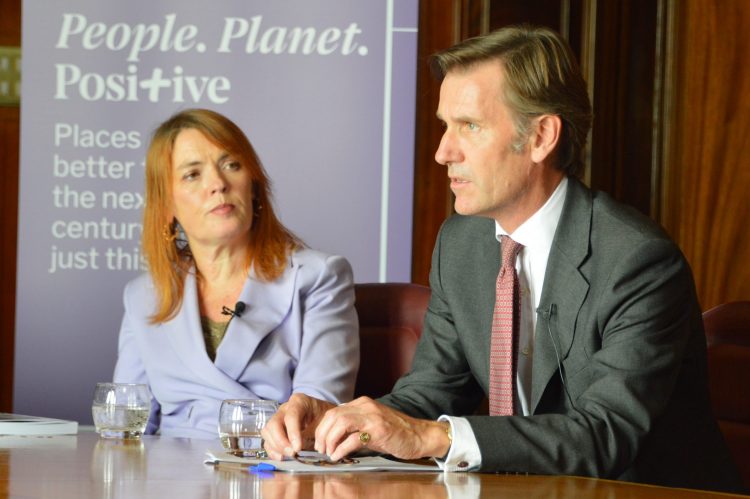
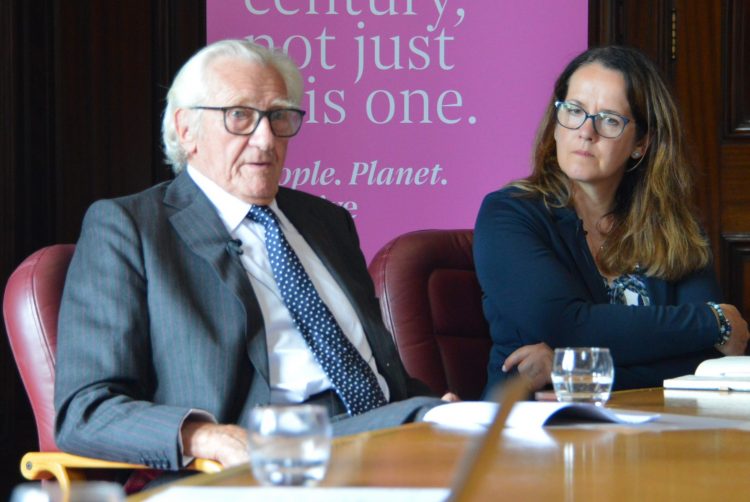
Zoe Davidson from Deloitte said during the discussion: “Liverpool ONE really transformed the heart of the city. It was critical at the time.”
She added that it was that meeting of minds between the city leaders and Grosvenor that was key to making Liverpool ONE a reality. She explained: “Grosvenor needed to have that long-term vision to invest.
“Both the councils and Grosvenor had that ambition and it paved the way for everything that came after. It was truly transformational.”
A native of Corby in Northamptonshire, Claire McColgan first came to Liverpool in 1989 and is now very much an adopted scouser. She played a pivotal role in the European Capital of Culture celebrations and masterminded Liverpool’s hosting of Eurovision in May this year, an event that was a spectacular success.
Speaking during the round table, she said: “I arrived here in 1989 and I came for the music and culture. Liverpool had its challenges but it had an energy and there were also great opportunities.
“When I came here I had an absolute belief in creativity and that is what has inspired me over the past 30 years… The talent that is out there in our communities is incredible.”
Claire worked for several years outside the city centre on regeneration, in areas including Speke/Garston and Dingle/Toxteth. This experience proved invaluable when it came to the big events.
“When we bid for European Capital of Culture it was something for the whole city to focus on and to move it forward in a really positive way,” she said. “We were talking about what is good about Liverpool rather than what is not.
“And that experience I had in Speke Garston and Dingle and Toxteth was what we brought into Capital of Culture. No other city was doing that. They weren’t putting local communities and the heart of their cities at the centre of their bids. We did.”
READ MORE: Liverpool culture sector to help Ukraine rebuild
READ MORE: ‘Range of options’ for Compton House, says M&S
Speaking to LBN before the round table, Claire said: “Hopefully Lord Heseltine has a sense of huge pride with what he instigated in Liverpool, along with many other people, and how the city has progressed.
“Cities go through ups and downs all the time. Every city in the world does. But I think Liverpool has been very consistent in its message around culture and tourism. We saw that in Eurovision.
“It has been a big deal for Liverpool. Lord Heseltine had that vision 40 years ago and now the Tate is here, the museums are here and look at what has been done at the new Southern Grasslands at the Garden Festival site.
“Consistently, over the past 40 years, culture has been part of those changes and has driven some of the biggest regeneration we have seen.”
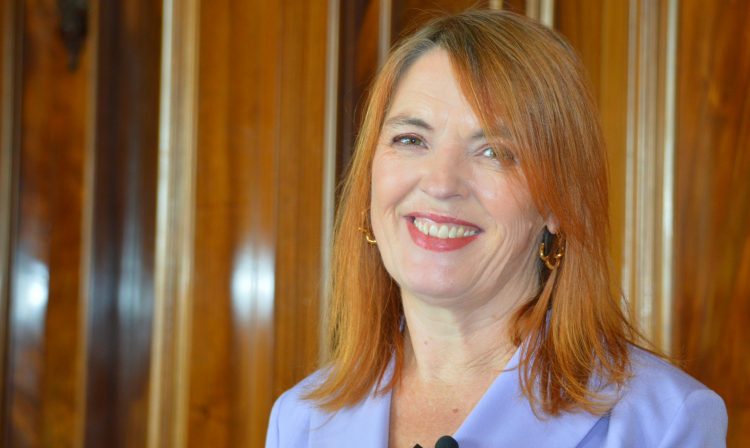
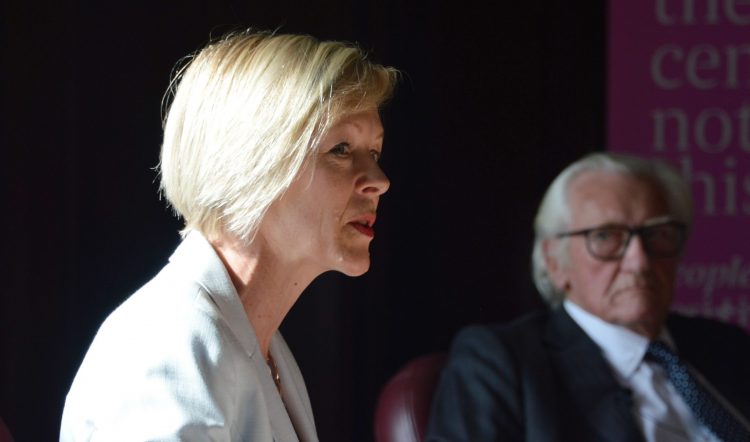
Sophie Bevan backed up Lord Heseltine’s point about the importance of devolution. She said: “We do have devolution and we do have the Combined Authority and they have long-term strategic funding and approaches.
“To work collaboratively with them on shared initiatives helps us overcome some of the difficulties we know exist. If we can develop good projects, it always has to be a partnership.
“We have a new team at the city council and we have a motivation to do things better and better. At the moment we are about to set out an investment strategy.
“We are looking ahead 10,15, 20 years. I am hugely optimistic. It won’t be easy but what we do have is passion and enthusiasm.”

